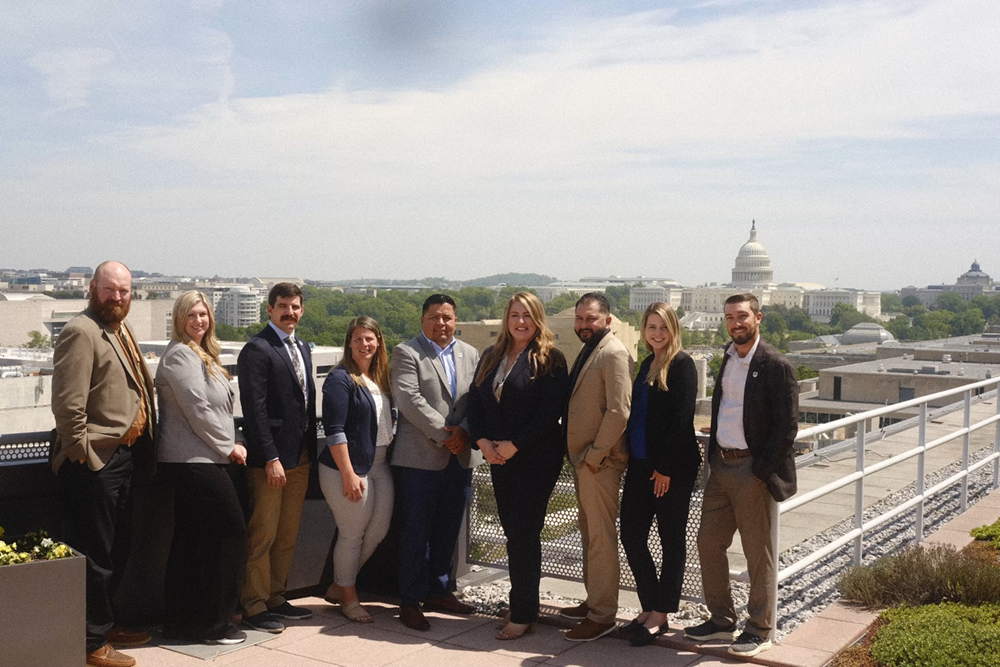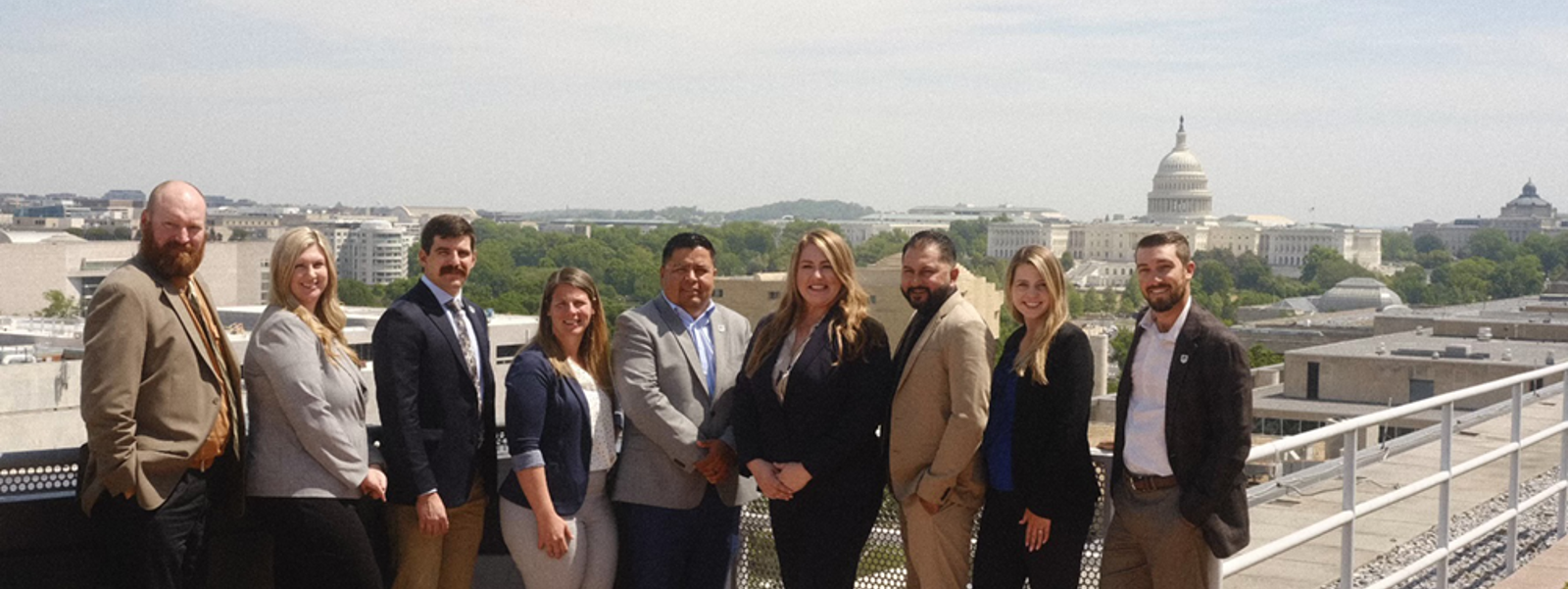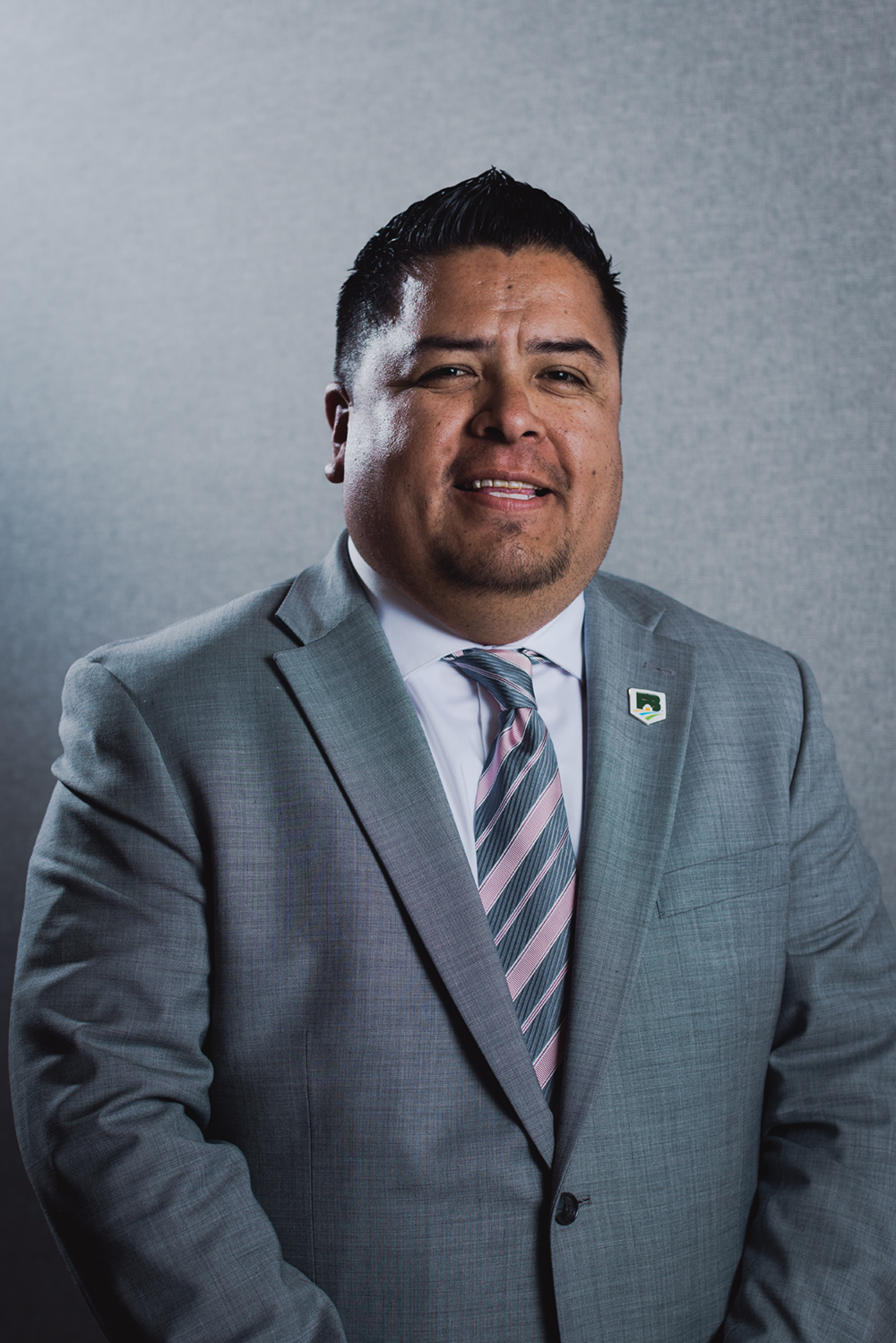Commentary: Farm Bureau leaders advocate on farm policy in D.C.

California Farm Bureau’s Leadership Farm Bureau class in Washington, D.C., include, from left, James Moller, Tanya Brouse, Ben Abatti III, Jackie Kennedy, Alex Arroyo, Danielle Vietti, Harry Sidhu, Rachel Nettleton and Sy Honig.
Photo/Isabella Quinonez



By Rachel Nettleton and Alex Arroyo
In April, the 2024 Leadership Farm Bureau class flew to Washington, D.C., where we engaged in a series of meetings with key policymakers to advocate for the interests of California agriculture, particularly regarding the upcoming farm bill.
Throughout our time in the nation’s capital, we gained valuable insight into the complex world of agricultural policy and laid the groundwork for impactful advocacy on behalf of our farming and ranching communities back home.
Leadership Farm Bureau is the emerging leaders program for the California Farm Bureau, which represents more than 26,000 member farmers, ranchers and agricultural professionals in the Golden State. The nine members selected to the LFB class this year are participating in a 10-month educational and professional development program, which includes 250 hours of instruction.
The class provides immersion in agricultural issues, public speaking and advocacy on critical matters affecting farmers, ranchers and agricultural businesses on local, state and national levels. The LFB class learns about agriculture in different regions of the country, about government, legislation, media and communications.These experiences equip our team to represent our counties and California Farm Bureau in the future.
Central to our agenda in Washington, D.C., were legislative visits aimed at lobbying for the farm bill, cornerstone legislation that shapes the future of America’s agricultural policy and funding. Armed with research, data and firsthand accounts from our constituents, we met with many members of Congress, such as Reps. Jim Costa, D-Fresno, and Doug LaMalfa, R-Richvale, to articulate the priorities and concerns of California agriculture.
We also had the opportunity to meet with representatives from the Embassy of Canada to discuss international trade policy. They emphasized the impact of the international trade relationship with Canada, an export destination for more than $5 billion in California agricultural commodities in 2022.
These meetings provided a platform to discuss a wide range of issues, from crop insurance and conservation programs to research funding and trade policy. We emphasized the importance of maintaining robust support for specialty crops, which are a key part of California’s agricultural economy. We stressed the importance of some of the major California commodities not covered by crop insurance, which include garlic, melons, broccoli, lettuce, carrots and cauliflower.
One of the major takeaways from our discussions was the recognition of agriculture’s vital role in addressing pressing societal challenges, from food security and environmental sustainability to rural economic development. By advocating for policies that support innovation, resilience and equity within the agricultural sector, we are not only safeguarding the livelihoods of farmers and ranchers but also advancing broader goals of economic and environmental stewardship.
Our meetings with members of Congress also highlighted the importance of bipartisan collaboration in advancing agricultural policy. Despite differing political affiliations and priorities, there was a shared recognition of the significance of agriculture to the nation’s economy and well-being. By fostering dialogue and finding common ground, we can work together to craft policies that benefit all stakeholders across the agricultural value chain.
The Leadership Farm Bureau group also engaged in dialogue with several U.S. Department of Agriculture leaders, including Robert Bonnie, undersecretary for farm production and conservation. He explained the different types of programs USDA has to offer for emergency relief for farmers and conservation programs. We highlighted the importance of rapid emergency financial relief, because it is crucial to all the small farmers around the state and country.
As we reflect on our time in Washington, D.C., one thing is clear: The work of advocating for agricultural policy is ongoing and multifaceted. While our meetings with key stakeholders were a critical step in the process, they represent just one piece of the puzzle. Moving forward, we are committed to continuing our engagement with policymakers, stakeholders and the broader agricultural community to shape policies that reflect the needs and aspirations of California agriculture.
In the months ahead, as the farm bill takes shape and debates unfold on Capitol Hill, we will remain vigilant and proactive in advocating for policies that promote the sustainability of California agriculture. Our journey in Washington, D.C., may have come to an end, but our work is far from finished. Together, as leaders in our industry, we will continue to navigate the complex terrain of agricultural policy, ensuring that the voices of California’s farming and ranching communities are heard and heeded at every turn.
(Rachel Nettleton is executive director of the Kern County Farm Bureau and Alex Arroyo is general manager of King City Transplanting in the Salinas Valley. They may be contacted at kcfb@kerncfb.com and Alex@KingCityTransplanting.com. Both are members of the 2024 Leadership Farm Bureau class, www.cfbf.com/ag-programs/leadership-farm-bureau.)




